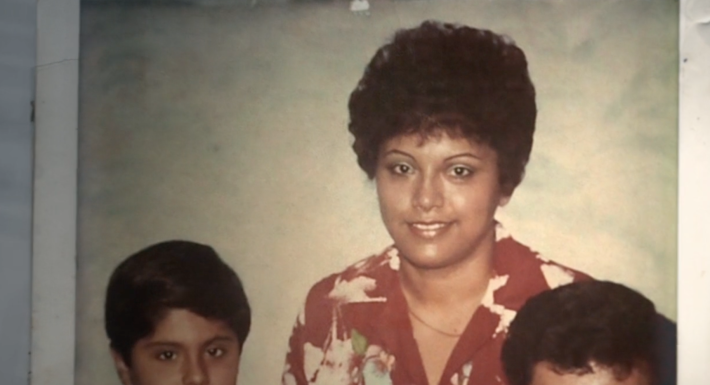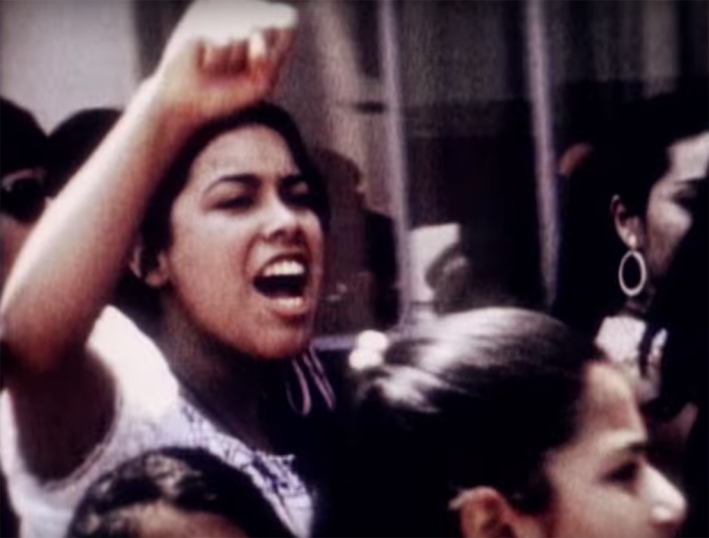[dropcap size=big]M[/dropcap]ore than 200 women, most of them Latinas, were sterilized between 1968 and 1974 by a Los Angeles County medical center, a little-known eugenics incident that took place in postwar United States and continued for years despite lawsuits and protests.
That's right, women in L.A. County in modern times were sterilized by trained and licensed doctors during a period of trendy fears of a brown "population boom." Many involved are still alive.
One such case pitted a group of Latinas known as the Madigral 10 against L.A. county’s lead obstetrician, Dr. James Quilligan, who reportedly approved of the sterilizations on 10 women because “poor minority women in L.A. County were having too many babies.” The women lost the case with Judge Jesse Curtis ruling the doctors had the women’s “best interest” in mind.
The women's struggle for justice is the subject of a 2015 PBS documentary No Mas Bebes.
[dropcap size=big]O[/dropcap]n Tuesday, before a group of the Madrigal 10 and their family members, the L.A. County Board of Supervisors voted to formally apologize to the victims, and announced support for a bill for reparations currently being considered by the California Assembly.
Madigral 10 plaintiff Melvina Hernandez, who spoke briefly in Spanish, said she was there to witness justice being served. “It wasn’t right what they did,” she said fighting back tears. “That why I want this all to be over.”
Emerson Orozco, the 16-year-old granddaughter of Madigral 10 member Helena Orozco, told the supervisors she was happy for the formal apology but angry that the history was hidden for so long.
“In the past, nothing was ever discussed of my abuela’s achievement,” Orozco said Tuesday. “Hearing what took place angered me then and it angers me now about the occurrence that took place without being discussed for so long. Tears have been shed for the courage shown by these 10 women.”
The incidents at LA County-USC Medical Center add to a broader California history of systematic sterilization. Starting in 1909, state sponsored clinics operating under a California law sought to prevent “unfit” people with “defective traits” from having babies. Latinas, poor people, and people with disabilities disproportionately fell into this “unfit” category.
During the 1968-1974 period, L.A. County did not have a program of forced sterilizations, but some patients were tricked into signing consent forms to be sterilized at the county hospital operating under that same logic of population control of "unfit" groups.

Madrigal 10 member Consuelo Hermosillo spoke forcibly Tuesday, saying that county officials in the 60s and 70s looked for any excuse to force sterilization such as legal status. In her case, she pointed out, they had no excuse since she had been an L.A. resident since the 1950s.
“I deserved their respect,” she said. “Only I should get to decide what I wanted to do with my body, if I wanted to have one or 20 kids. That's nobody's right to take from a woman.”
Orozco recalled a story her grandmother told her when she 13-years-old about how doctors tricked her into a tubal ligation – more commonly known as having your tubes tied – to repair a hernia.
“My abuela once said that ‘a doctor said that if you do not consent to the tubal ligation that the doctor repairing my hernia would use an inferior type of stitching material which would break the next time I became pregnant,’” Orozco recalled. “‘That is why I consented to the tubal ligation. So that the stitches would hold, so that the proper string would be used. No one ever explained what a tubal ligation operation was.’”

[dropcap size=big]S[/dropcap]upervisor Hilda Solis, who co-authored the motion with Supervisor Sheila Kuehl, called the sterilizations “a black eye on the county and on the state.”
“The forced sterilization of women in the state of California — mostly Latina women and girls — is one of the most shameful events in the history of our state, " Solis said.
The only Latin woman on the board also pointed out that though these women signed consent forms, they likely did not understand what they were consenting to “due to possible linguistic and cultural barriers.”
The supervisors are backing a bill proposed by State Sen. Nancy Skinner, D-Berkeley, that proposes pay victims of California’s eugenics practices. More than 20,000 Californians were forcibly sterilized between 1909 and 1963 overall. The bill passed the state Senate in May and is set to be heard in committee starting Wednesday by the State Assembly.
Beyond a legal measure to pay reparations, the women in these cases have little legal recourse. An appeal to Judge Curtis's ruling by the Madigral 10 in 1979 was denied.
"[It] is an important piece of legislation that also illuminates the painful collective memory,” Solis said. “The tremendous physical and emotional damage to these women, their families, and our communities cannot be undone.”
Orozco said the pain helped shed light on the strength of the 10 Latina activists who fought back and lost. “Sitting here, I have a bittersweet happiness that this is how I learned more about my abuela. She was a remarkable woman.”







